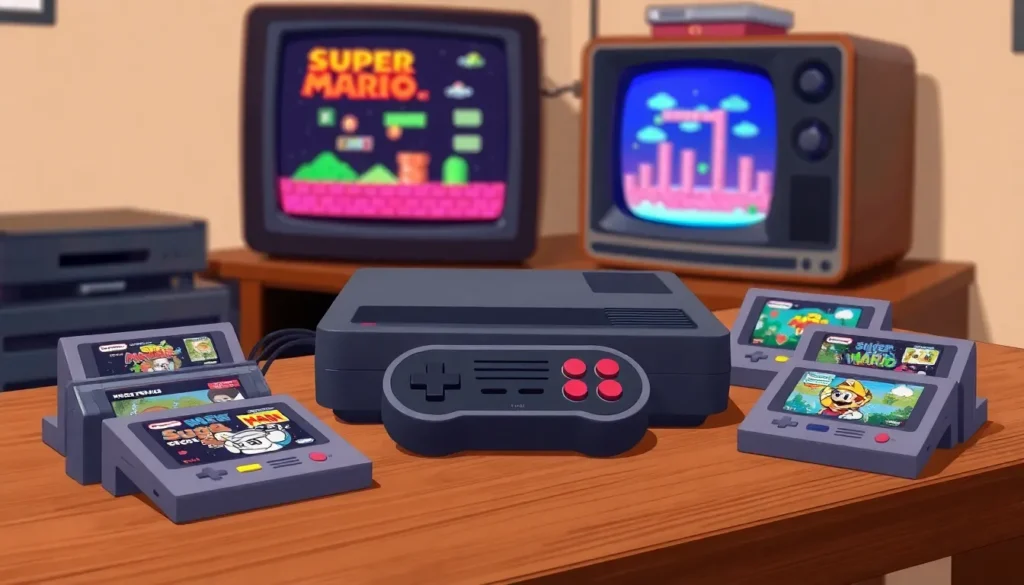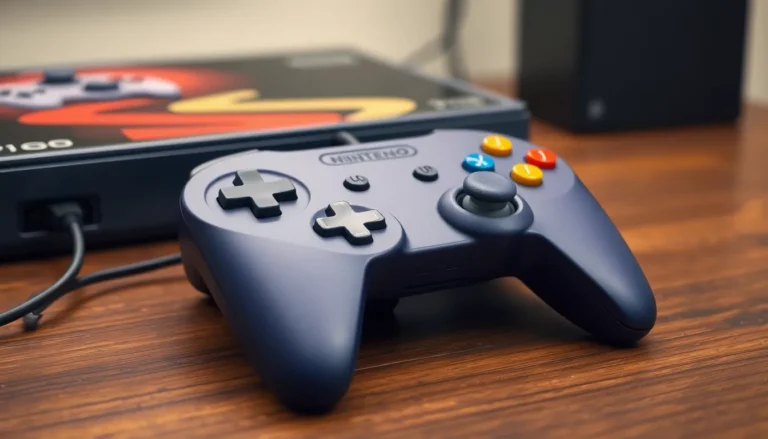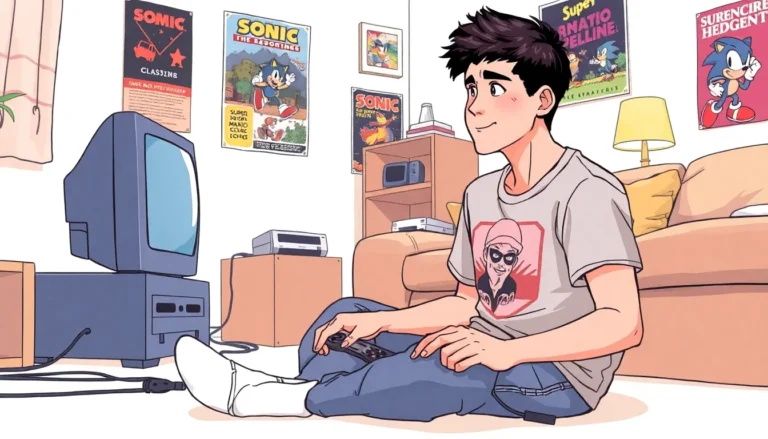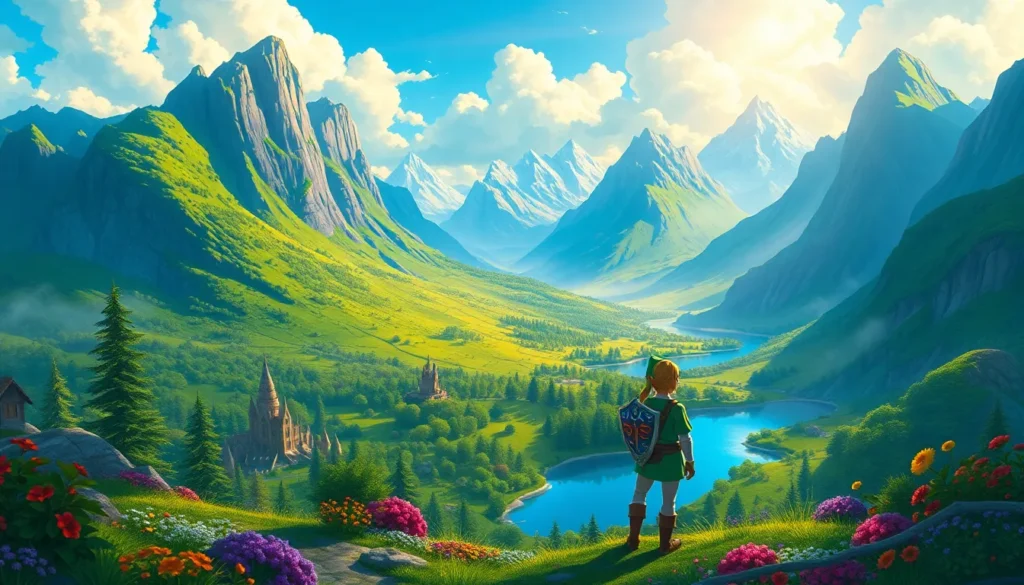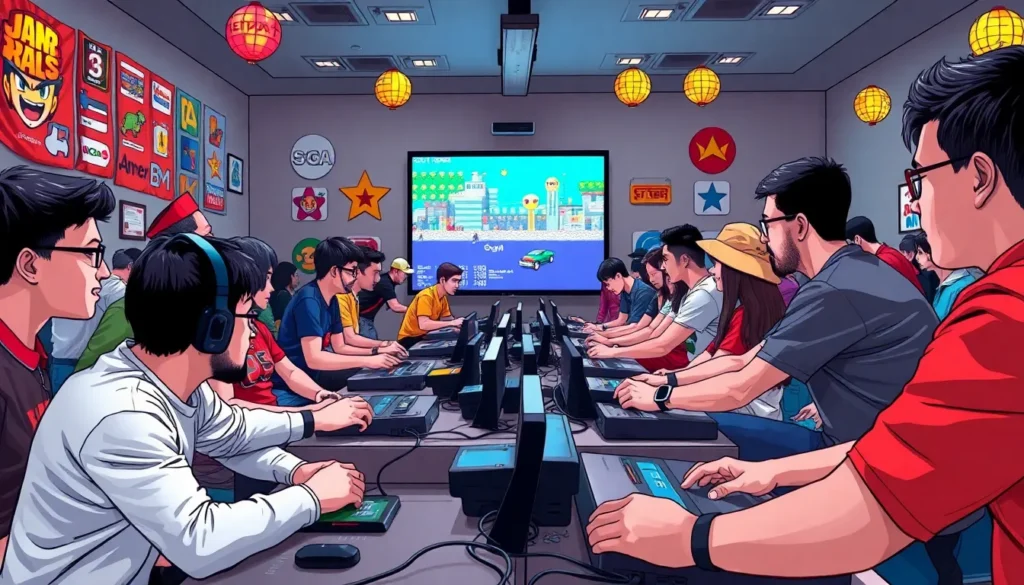Nostalgia hits hard when thinking about the golden age of gaming. Those pixelated graphics and 8-bit soundtracks bring back memories of epic battles fought in living rooms and late-night high-score competitions. Retro games are more than just a trip down memory lane; they’re a testament to the creativity and innovation that shaped the gaming industry we know today.
Imagine diving back into those classic worlds where the only thing standing between you and victory was a stubborn joystick. From platforming legends to puzzling adventures, retro games offer a charm that modern titles often struggle to replicate. So grab your controller and get ready to relive the glory days, because this list of the best retro games is about to take you on a wild ride through pixelated paradise.
Table of Contents
ToggleOverview of Retro Gaming
Retro gaming highlights a unique blend of nostalgia and creativity that defines its charm. Pixelated graphics and 8-bit soundtracks transport players back to a simpler gaming era. Many individuals cherish the classic gameplay mechanics and straightforward designs that these games offer. These titles laid the groundwork for the evolution of the modern gaming industry, showcasing innovation in storytelling, character development, and interactive entertainment.
Several factors contribute to the enduring appeal of retro games. Players often connect with the nostalgia tied to their childhood experiences. Iconic titles evoke memories of shared moments with friends and family, creating a sense of community among enthusiasts. Gamers appreciate the challenge presented by these earlier games, which often require skill and patience to complete.
Popularity also stems from the accessibility of retro games. Many games from the 70s to the 90s are now available through various platforms, including consoles, PC, and mobile devices. Emulators and mini consoles allow for easy playback of these classics. Developers occasionally release remastered versions, updating graphics while maintaining the original essence of the gameplay.
The conversation around retro gaming continues to grow. As new generations discover these classic titles, interest in retro gaming communities flourishes. Many dedicated gamers participate in forums and events, sharing their stories and experiences. Retro gaming captures a sense of joy and creativity that remains relevant in today’s digital landscape, fostering both nostalgia and exploration.
Top 10 Best Retro Games
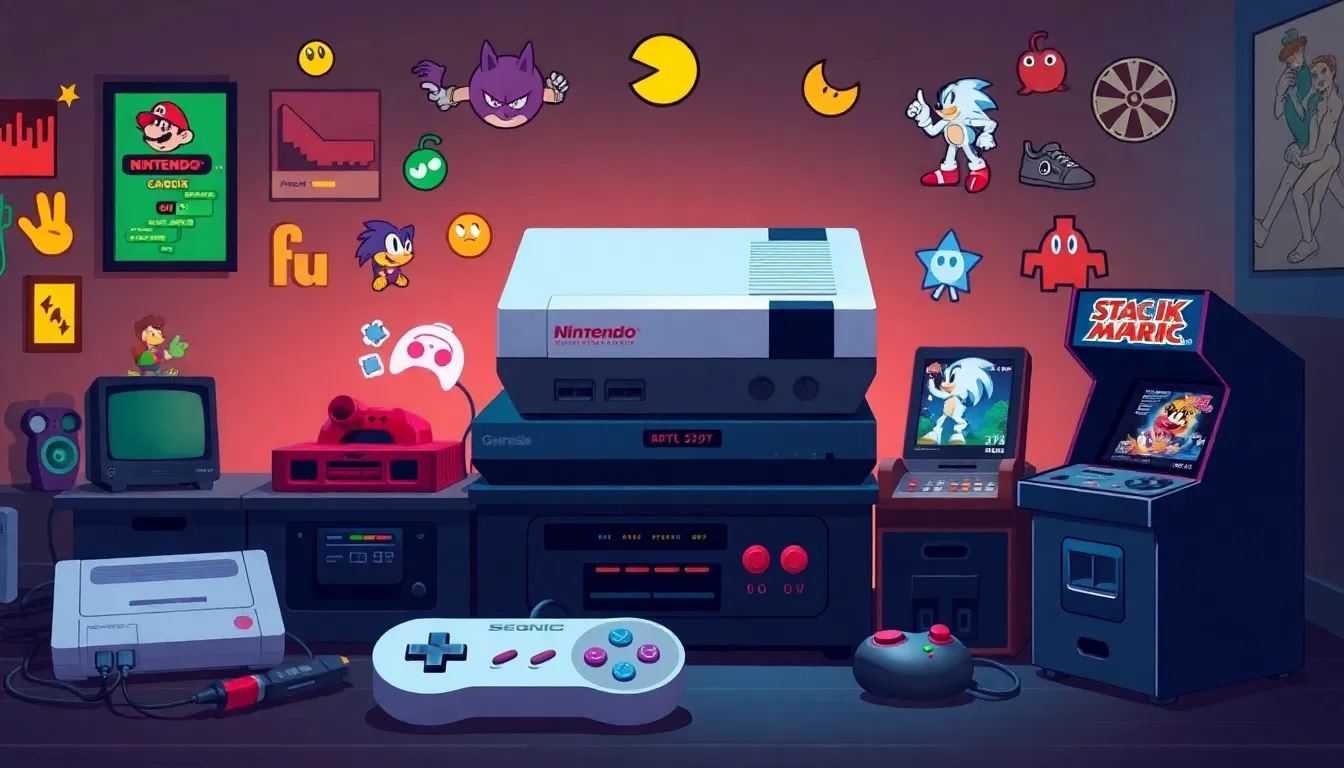
Retro games captivate players with their charm and simplicity. Here’s a rundown of ten iconic titles that remain favorites among fans.
Game 1: Super Mario Bros.
Super Mario Bros. revolutionized platform gaming when it launched in 1985. Players guide Mario through vibrant levels, battling enemies and collecting power-ups. Its level design set a benchmark for future games, making it a legendary title in the gaming community.
Game 2: The Legend of Zelda
Released in 1986, The Legend of Zelda introduced the concept of an expansive open world. Players embark on a quest to rescue Princess Zelda, solving puzzles and battling formidable foes. Its innovative gameplay mechanics influenced countless adventure games that followed.
Game 3: Pac-Man
Pac-Man emerged in 1980 as a trailblazer in the arcade gaming scene. Players navigate a maze, consuming pellets while avoiding colorful ghosts. Its iconic characters and simple yet addictive gameplay continue to resonate with new generations.
Game 4: Tetris
Tetris debuted in 1984 and quickly became a staple of puzzle gaming. Players rotate and arrange falling blocks to clear lines. This straightforward concept combined with increasing difficulty creates a compelling challenge that remains timeless.
Game 5: Donkey Kong
Donkey Kong saw its release in 1981, introducing players to platforming action. Players control Mario as he climbs platforms to rescue a kidnapped princess from the titular ape. This game marked the beginning of Mario’s journey to stardom in the gaming world.
Game 6: Sonic the Hedgehog
Sonic the Hedgehog burst onto the scene in 1991, bringing speed to platform gaming. Players race through levels, collecting rings and defeating Dr. Robotnik. Sonic’s attitude and fast-paced gameplay set a new standard for character action games.
Game 7: Street Fighter II
Street Fighter II emerged in 1991, becoming a cornerstone of fighting games. Players select from a roster of characters, each with unique abilities, to battle opponents. Its competitive gameplay helped establish the competitive gaming scene widely enjoyed today.
Game 8: Final Fantasy VI
Final Fantasy VI, released in 1994, stands out as a landmark in RPG storytelling. Players explore a rich narrative filled with memorable characters and challenging battles. Its deep emotional engagement set a new precedent for role-playing games.
Game 9: Castlevania: Symphony of the Night
Castlevania: Symphony of the Night debuted in 1997 and redefined the metroidvania genre. Players traverse a sprawling castle, gaining powers and defeating monsters. Its replay value and atmospheric design have earned it a dedicated fan base.
Game 10: Mega Man 2
Mega Man 2, launched in 1988, captivated players with its platforming and shooting mechanics. Players tackle themed levels to defeat Robot Masters, each offering distinctive challenges. This title solidified the Mega Man franchise as a beloved part of gaming history.
Impact of Retro Games on Modern Gaming
Retro games profoundly influence modern gaming. Developers draw inspiration from classic titles, integrating pixelated art styles and 8-bit soundtracks into contemporary projects. Mechanics from retro games often appear in modern titles, emphasizing simple yet engaging gameplay.
Cultivating a sense of nostalgia remains crucial. Many players cherish their childhood experiences tied to older games, facilitating emotional connections with new releases. Retro gaming culture fosters community, connecting enthusiasts through shared memories and experiences.
Remastering and re-releasing classic games on modern platforms benefits new generations of gamers. Access to retro games via emulators encourages exploration of gaming history. This expanded reach contributes to the growing interest in retro communities, promoting creativity and collaboration among players.
Successful modern games also showcase elements from retro influences. Indie developers frequently incorporate retro aesthetics, refreshing the charm of classic gameplay for today’s audience. Titles like “Stardew Valley” and “Celeste,” which borrow from earlier gaming styles, receive acclaim for their engaging mechanics and artistic designs.
The impact of retro games extends beyond nostalgia. They offer valuable lessons in design, creativity, and innovation that resonate in current game development. Enormous success of franchises that honor their roots demonstrates that blending old concepts with modern technology can yield remarkable results.
Ultimately, the legacy of retro games shapes the gaming landscape today. They inspire creativity, cultivate connections among players, and highlight timeless principles that continue to drive the industry forward.
Retro games are more than just a trip down memory lane. They embody the creativity and innovation that shaped the gaming industry. The simple yet engaging mechanics and pixelated visuals continue to attract both seasoned players and newcomers alike.
As these classics find new life through remasters and modern platforms, the sense of community among enthusiasts flourishes. The joy of exploring these timeless titles fosters connections that transcend generations.
With the influence of retro gaming evident in contemporary titles, it’s clear that the legacy of these games will persist. Embracing their charm not only enriches the gaming experience but also keeps the spirit of creativity alive in today’s digital world.

